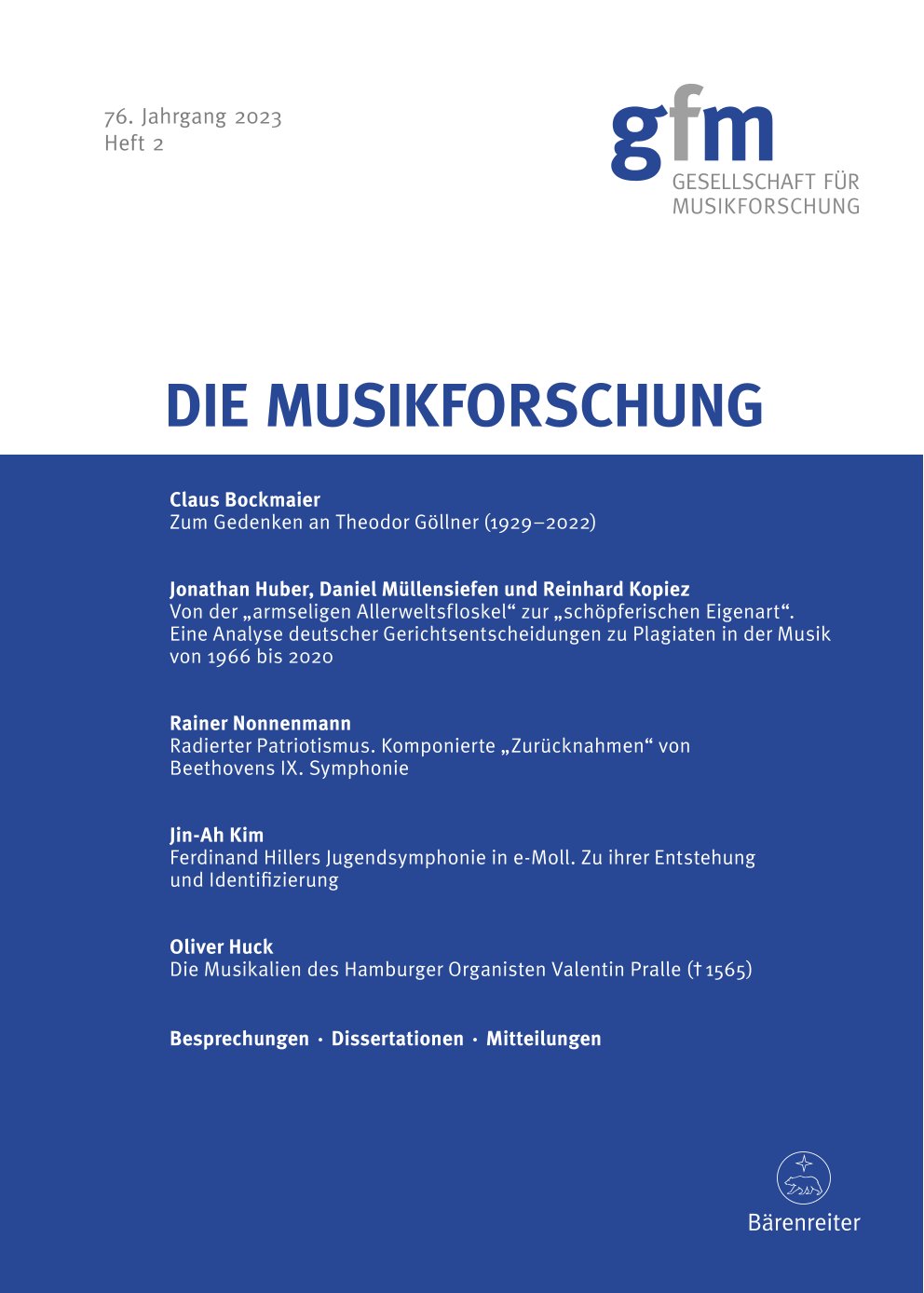Von der „armseligen Allerweltsfloskel“ zur „schöpferischen Eigenart“
Eine Analyse deutscher Gerichtsentscheidungen zu Plagiaten in der Musik von 1966 bis 2020
Schlagworte:
Plagiat, musical plagiarism, copyright, Gerichtsentscheidungen, UrheberrechtAbstract
Musical plagiarism has been widely discussed in academic contexts as well as in the popular press, especially due to recent prominent cases such as Metall auf Metall (German band Kraftwerk vs. producer Moses Pelham) or Dark Horse in the US (Katy Perry vs. Flame). However, there are no objective standards for the clear assessment of such cases. Instead, the relatively arbitrary decisions lie with the courts in each individual case. In order to systematically classify this phenomenon, and to identify tendencies and developments in case law, we identified and analyzed the court rulings of all lawsuits on musical plagiarism in Germany between 1966 and 2020. Based on a systematic comparison of the texts, we identified a recurring four-step structure that shows how German courts examine music plagiarism cases. The results of this analysis demonstrate that questions regarding the similarity and the protected status of musical works are at the centre of this examination. The most prominent musical factor is the melody; however, copyright protection can also arise from the interaction of different musical features. The results are discussed in the context of existing academic research and the most recent copyright developments in Germany.






